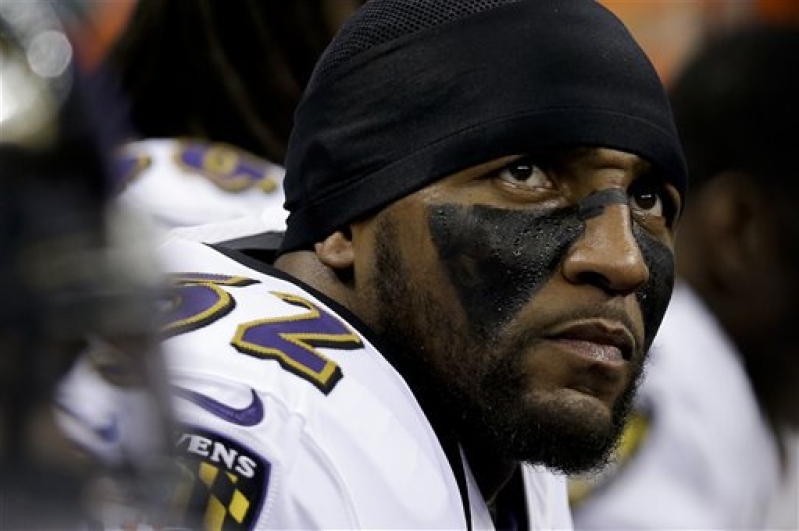
The Baltimore Ravens have cancelled their NFL draft party, which was supposed to take place on Thursday, due to the intense riots and protests in Baltimore surrounding Freddie Gray, who died in police custody on April 19. In addition, Ravens legend Ray Lewis and basketball player Carmelo Anthony have pleaded to Baltimore residents to halt the social unrest in their city.
According to James Parziale of Fox Sports, the Ravens cancelled their draft party "out of respect to the curfew in Baltimore." The team released a statement on Tuesday.
"For all fans who already purchased tickets, automatic refunds will be issued via the method of payment used for the purchase," the Ravens said. "Questions concerning refunds can be directed to the Ravens' ticket office at 410-261-RAVE (7283)."
Parziale reported that peaceful protests turned violent near the stadium where the Baltimore Orioles played on Sunday. In addition, civil unrest broke out across Baltimore after Gray's funeral on Monday, which forced city officials to enforce a curfew between 10 p.m. and 5 a.m.; the National Guard has been called in to halt further violence.
According to Ian Begley of ESPN, two of Baltimore's most recognizable athletes, Lewis and Anthony, shared their thoughts on the violence in the city. Lewis, who used to be a star linebacker for the Ravens, implored the rioters to "stop the violence."
"Baltimore, get off the streets. Kids, go home. Stay home," Lewis said in a Facebook video. "You don't have [any] right to do what you're doing to this city. Too many hard-working people built this city. We put this city together; we put this city on our back."
Lewis acknowledged that "there was wrong done," but he added that "rioting in our streets is wrong."
Anthony, who spent most of his childhood in Baltimore, wrote a message on Instagram urging Baltimore citizens to "build our city up, not tear it down."
"We all want Justice. And our city will get the answers we are looking for," Anthony wrote. "My deepest sympathy goes out to the GRAY Family. To see my city in a State of Emergency is just shocking. We need to protect our city, not destroy it."
Anthony hoped that people would "think about the youth" and "how this will impact them."
According to Begley, both Lewis and Anthony believed that there were other, more effective ways to bring change besides rioting in the streets. Lewis, who works as an ESPN analyst, pleaded with young people to go home and restore peace in Baltimore.
"Young kids, you've got to understand something. Get off the streets. Violence is not the answer, violence has never been the answer," Lewis said. "We know there's a deeper issue. We know what the jungle looks like. But this isn't it."
Lewis urged those participating in the riots to halt the violence and consider the future of Baltimore's children.
"Too many babies paying attention to this craziness," Lewis said. "And the sad part is, we've got young kids trying to tell us how they're going to dictate our city. That won't happen. We must change this right now. Stop the violence man. Go home. I'm telling you, go home."
Anthony, who plays for the New York Knicks, noted that people should pay attention to "the real issues" surrounding Baltimore instead of the riots.
"I know my community is fed up. I'm all about fighting for what we believe in," Anthony wrote. "The anger, the resentment, the neglect that our community feels right now, will not change overnight."
Anthony added that there are consequences in continuing such destructive behavior.
"Remember, it takes no time to destroy something," Anthony wrote. "But, it can take forever to build it back up."






